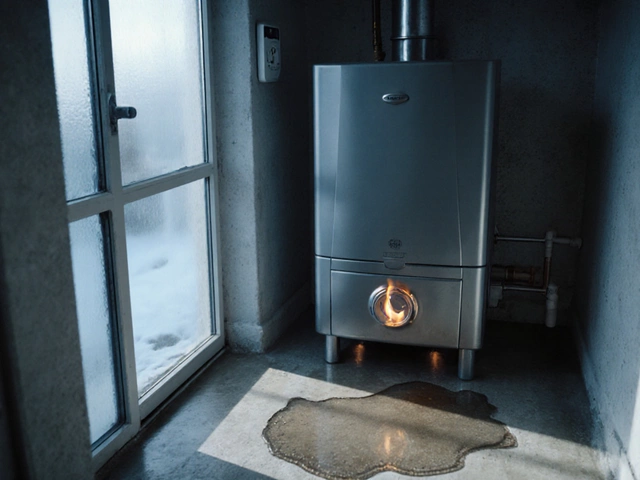Replace Your Oven Element: A DIY Guide
March 27 2025HVAC Tips: Keep Your Home Comfortable and Your Bills Low
If your home feels too hot in summer or chilly in winter, the first thing to check is your HVAC system. A few easy steps can make a big difference, and you don’t need a toolbox full of gadgets to get started. Below are practical tips you can try today, plus clear signs that it’s time to call a certified gas engineer.
Simple Maintenance That Saves Money
Swap the filter. A dirty filter forces the fan to work harder, raising energy use and lowering airflow. Check it every month during peak seasons and replace it when it looks gray or clogged. Most filters cost less than £10 and take under five minutes to install.
Set the thermostat wisely. For heating, drop the temperature by 1°C when you’re out or asleep – you’ll see up to a 5% drop in your bill. In summer, set the cooling thermostat a few degrees higher than you’d like; fans can move air for free and keep rooms comfortable.
Seal leaks around doors and windows. Cold air sneaks in through gaps, making the boiler or heat pump work overtime. Use weather‑stripping or draft‑excluders – they’re cheap and easy to fit.
Clean the condenser coils. Outdoor units collect dust and leaves. Turn off the power, remove debris, and gently spray the coils with water. Clean coils improve efficiency by up to 15%.
Check the boiler pressure. Look at the pressure gauge on your gas boiler. It should sit between 1 and 1.5 bar when the system is cold. If it’s low, top it up using the filling loop; if it’s high, bleed a radiator or call a professional.
When to Call a Pro
Even the best DIY care can’t fix everything. Call Bedford Gas Appliance Repair Services if you hear rattling noises, notice uneven heating between rooms, or see a sudden spike in energy bills. These symptoms often point to a failing heat exchanger, a faulty pump, or a refrigerant leak – issues that need a certified engineer.
Another red flag is water pooling around the boiler or heat pump. Leaks can damage floors and create safety hazards. Turn off the system and arrange a service visit right away.
If your thermostat displays error codes or refuses to stay on, the control board may need replacement. Trying to tinker with electrical components without training can be dangerous, so let a professional handle it.
Finally, remember the annual boiler service isn’t just a paperwork requirement. Skipping it can void warranties, raise the risk of carbon monoxide leaks, and cause costly breakdowns during the cold months. A yearly check keeps everything running safely and efficiently.
By sticking to these simple habits and knowing the warning signs, you’ll enjoy steady comfort, lower utility costs, and fewer emergency calls. Keep the tips handy, schedule a yearly service, and let the experts step in when the job gets too big. Your home will thank you, and your wallet will feel the relief.
 13 Feb
13 Feb
The Efficiency Limits of a Heat Pump: Understanding the Temperature Thresholds
Ever wondered when your heat pump stops being a superstar and starts slacking on your heating bills? Heat pumps work great until certain low temperatures hit, where they start losing their efficiency. Knowing this critical temperature helps in ensuring your heat pump is always up to the task. This article breaks down the temperature threshold for heat pumps and offers practical tips to keep them running efficiently.
Read More...



